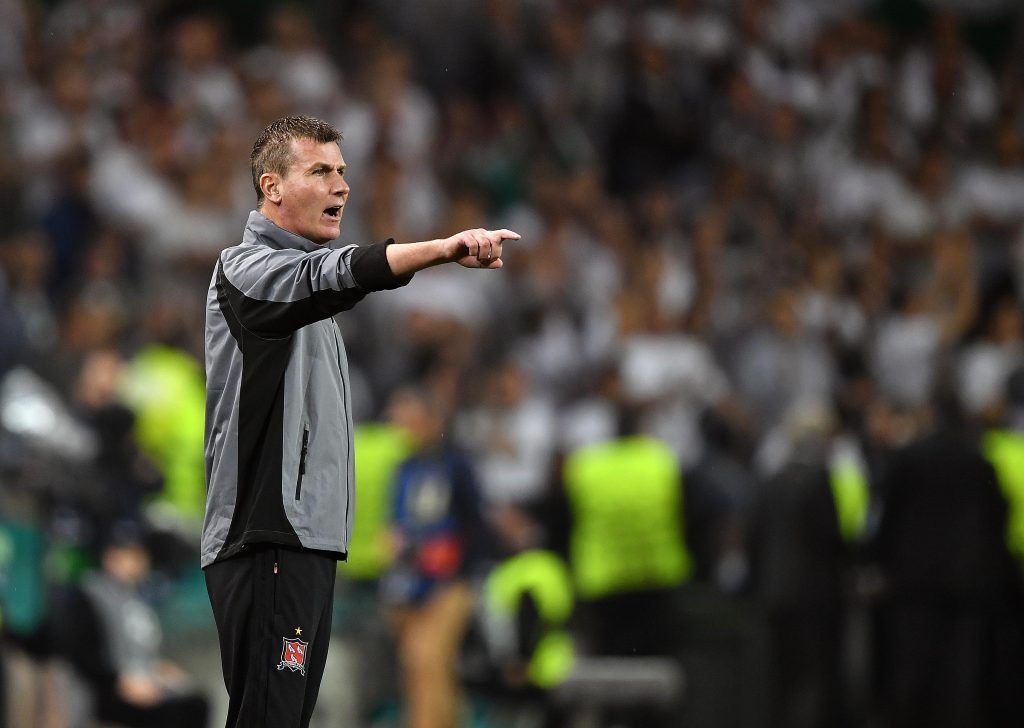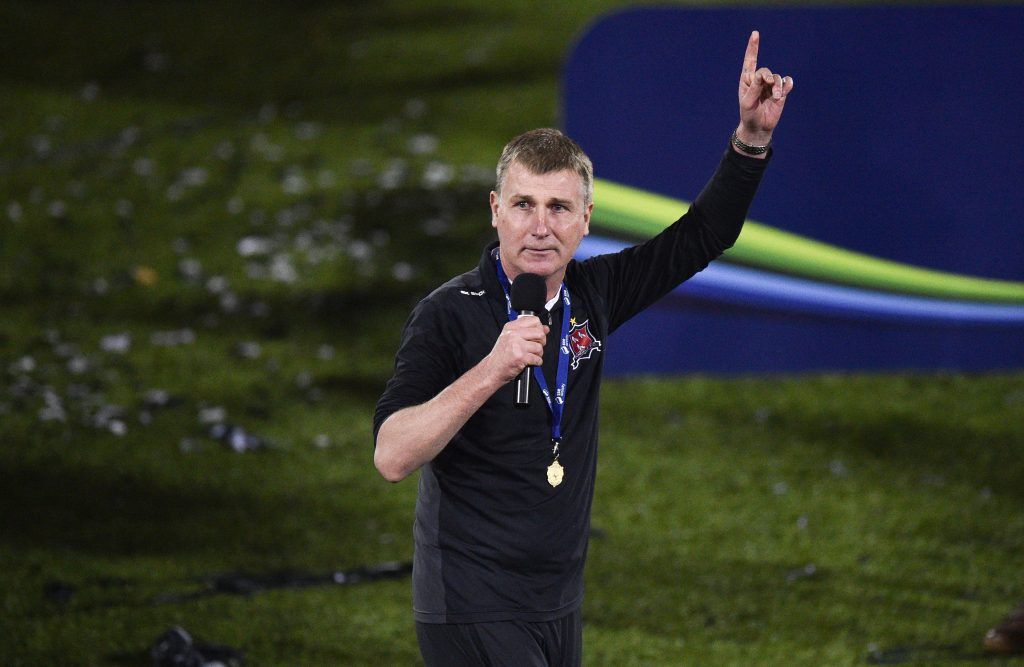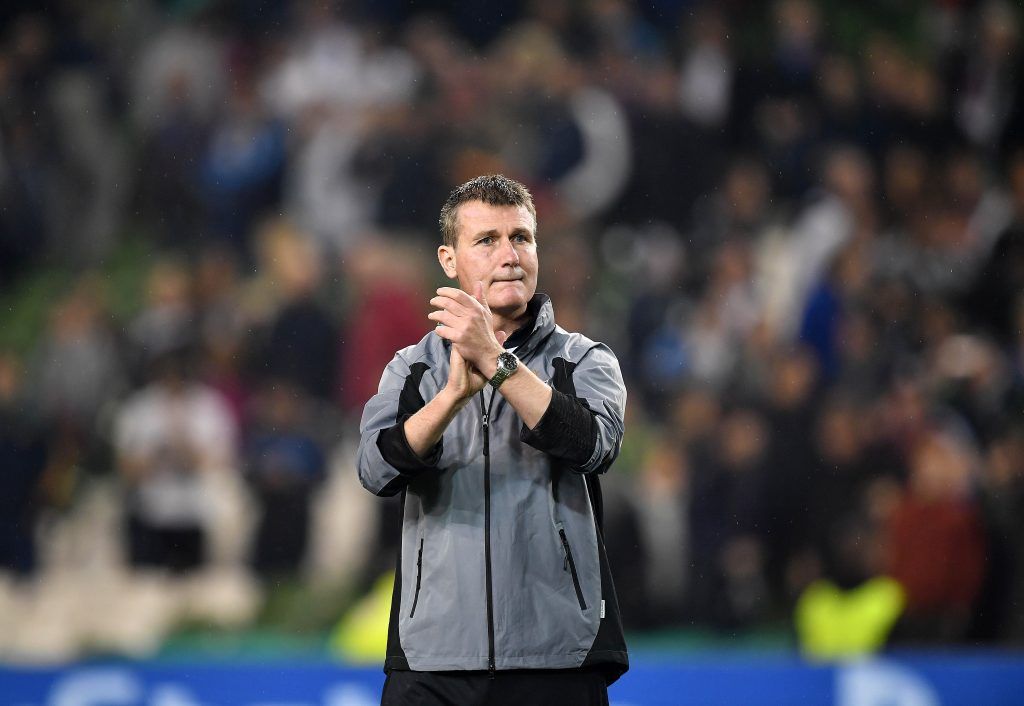

Share
4th November 2018
04:10pm GMT

 However, Kenny's Dundalk has disproved this notion over the last few years.
The Irish champions, who go for the double against Cork City at the Aviva Stadium on Sunday afternoon in the Fai Cup final, have achieved great success playing progressive football.
Ahead of the cup final, Kenny passionately disputed the fatalistic nonsense about Irish football and footballers.
https://twitter.com/RobRedmond10/status/1054670485361958912
"I just find that attitude so frustrating," Kenny told The Irish Times.
"I can't comprehend that. Part of our problem is looking at what players can’t do rather than what they can. Over the years you hear this phrase – 'Play football in the right areas'. That’s another one that I absolutely hate.
However, Kenny's Dundalk has disproved this notion over the last few years.
The Irish champions, who go for the double against Cork City at the Aviva Stadium on Sunday afternoon in the Fai Cup final, have achieved great success playing progressive football.
Ahead of the cup final, Kenny passionately disputed the fatalistic nonsense about Irish football and footballers.
https://twitter.com/RobRedmond10/status/1054670485361958912
"I just find that attitude so frustrating," Kenny told The Irish Times.
"I can't comprehend that. Part of our problem is looking at what players can’t do rather than what they can. Over the years you hear this phrase – 'Play football in the right areas'. That’s another one that I absolutely hate.
"This is what I was saying about English football but I want to be careful it doesn’t sound like I’m criticising anyone in particular because I’m not. It’s just a thing in the English game, a whole generation of coaches influenced by that sort of no-risk football and players who’ve come through playing that way. "They’ve been institutionalised in their way of thinking and they don’t think there’s another way. Or they think payers are not capable of another way.
 Kenny said that this fatalistic British attitude to the game - a point of view that has largely been discarded across the water - has its roots in Irish football going back to Jack Charlton's success as Republic of Ireland manager between 1986 and 1995.
Playing in an agricultural but effective fashion, the team qualified for three major championships under Charlton - Euro '88, the 1990 World Cup and the 1994 World Cup. However, such a way of playing has been bypassed in the modern game.
Kenny said that this fatalistic British attitude to the game - a point of view that has largely been discarded across the water - has its roots in Irish football going back to Jack Charlton's success as Republic of Ireland manager between 1986 and 1995.
Playing in an agricultural but effective fashion, the team qualified for three major championships under Charlton - Euro '88, the 1990 World Cup and the 1994 World Cup. However, such a way of playing has been bypassed in the modern game.
 Kenny claims that view of Irish football has been negatively influenced by the football played over 20-years ago during the national team's most successful period.
Kenny claims that view of Irish football has been negatively influenced by the football played over 20-years ago during the national team's most successful period.
"We’ve had it here with Jack Charlton and it coincided with our most successful ever period of international football and so people have been influenced by it and they think it’s the way we play. "They think that suits us, that it’s in our DNA in Irish football. And I find that offensive, I really can’t stomach that idea. I can’t tell you how much I really dislike it."Kenny is correct. Irish football had a tradition of producing small, skilful and technical footballers - from Johnny Carey to John Giles, Liam Brady to Roy Keane, Robbie Keane and Damien Duff. To suggest that the country is somehow inherently suited to playing long-ball football is a fallacy. https://twitter.com/SportsJOEdotie/status/935181284661489665 However, the reliance on English football has led to the country exporting players who were considered to have a better chance of thriving in the game across the water. This has meant exporting players who were physically developed, rather than technical players who may initially struggle in the rough and tumble of British football. Kenny has proven with Dundalk that Irish players can play progressive football when they have a manager who coaches them, motivates them and has a positive view of their ability. Someone who looks at what they can do rather than focusing on their limitations.
Explore more on these topics: